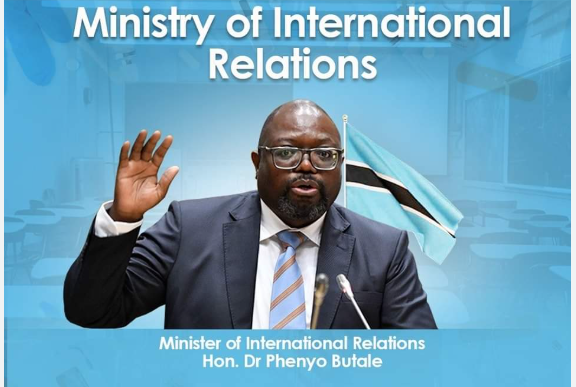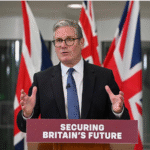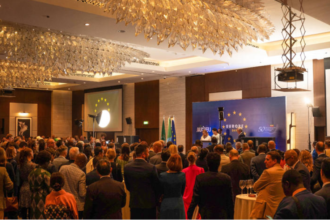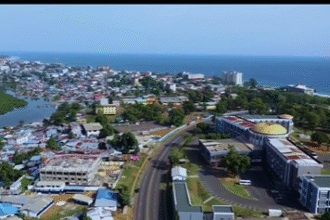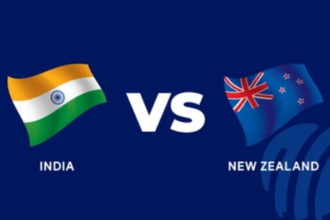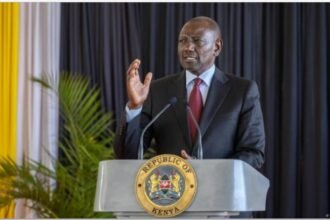By Mario Labrador
Brussels, Belgium – Botswana is actively seeking to strengthen its trade relationship with the European Union as it grapples with the impact of a 37% trade tariff imposed by the United States under President Donald Trump’s administration. The call for deeper economic ties comes amidst pledges from the African Union and European Union to bolster cooperation on peace, security, and economic development.
Speaking to Euronews on the sidelines of the third EU-AU ministerial meeting in Brussels, Botswana’s Foreign Minister, Phenyo Butale, emphasized his country’s openness to business and the potential for a more mutually beneficial partnership with Europe. “There is room for us and Europe and Belgium to reimagine this relationship and ensure that we improve our trade and ensure that Botswana and Europe benefit mutually from this relationship,” Butale stated.
The US tariffs have hit Botswana particularly hard, especially as the nation’s economy, heavily reliant on diamond exports, experienced a contraction of 3.1% last year due to weakened global demand for the precious gem. While projections suggest a 3.3% economic growth this year based on an anticipated recovery in the diamond market and positive sentiment within non-diamond mining sectors, the impact of the US trade policies casts a shadow of uncertainty.
“We are engaged with the government of the US through bilateral and diplomatic channels,” Butale assured. “We have an excellent relationship with the US and believe this relationship, which has existed for years, will be able to ensure an amicable and mutually beneficial solution for both countries.”
Although Botswana’s exports to the US in 2023, totaling around €5.4 billion, accounted for less than 2% of its total exports, a significant portion benefited from duty-free access under the African Growth and Opportunity Act (AGOA). With the expiration of AGOA scheduled for this September, the future of this pivotal trade pact remains uncertain.
In contrast, the EU stands as Botswana’s second-largest trading partner after South Africa. According to the European Commission, the 27-nation bloc maintains long-standing economic and trade relations with Gaborone, solidified through the EU-SADC Economic Partnership Agreement (EPA) implemented in 2016.
The EU has allocated €24 million in bilateral funding to its partnership with Botswana for the period 2021-2027, focusing on green transformation, economic diversification, and job creation. The European Union also supports Botswana’s efforts in developing eco-tourism and horticulture value chains, transitioning to sustainable energy, and advancing its digital agenda.
Minister Butale lauded this cooperation and urged for further strategic investments, particularly in the mineral sector. “There are a lot of opportunities in the mineral sector. Right now, there is a rush for rare earth minerals and there are opportunities in that space,” he said.
Botswana’s quest for diversified trade partners and strengthened economic partnerships follows a recent historic and peaceful transfer of power, a shift attributed to voters seeking solutions to economic challenges and job creation, adding further impetus to the drive for enhanced international engagement.


